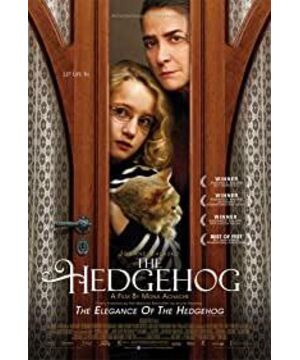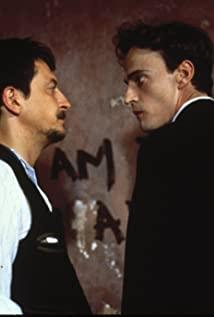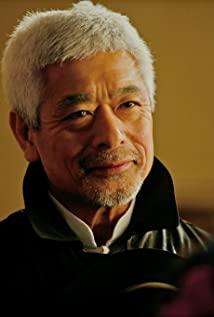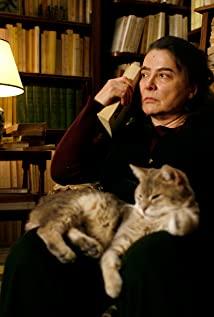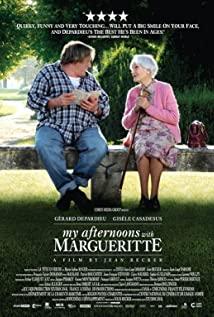The film will not only focus on talented artists, but also on ordinary people. Just as director Yang Dechang said in "Yi Yi" in the words of the fat man: "After the invention of the movie, human life has been extended at least three times."
After all, movies are an expression of human nature, and outstanding directors can always gain insight into the deeper aspects of life in the details of ordinary life.
"The Elegance of the Hedgehog" focuses the camera on a little girl under the age of 12. At a young age, she has meticulous observation of life and philosophical thinking. She is more sensitive than ordinary people and can capture the surface life. underlying factors behind the phenomenon. At the age of 11, the brain has begun to realize the absurdity of life and think about the meaning of death.
Eleven-year-old Paloma decided to commit suicide on June 16, his 12th birthday. Before he died, he turned his camera on the grotesque world around him, and wanted to make a movie that would show audiences how absurd life is.
Under her lens, there are neurotic mothers who have been taking tranquilizers and nerve-soothing drugs for ten years, politician fathers who care more about career than family, proud, domineering, indifferent, rather selfish sisters, and those superficial beauty A decent, but deeply empty middle class.
When Paloma's camera was aimed at the perennial widowed and humble janitor, Mrs. Michel, she seemed to have found her own kind in the world, who, like herself, was a little weird in the eyes of outsiders, more than herself. Humble and unobtrusive, always pretending to be indifferent and eccentric, but Paloma can see the delicate feelings deep inside her through the acerbic indifference on the surface.
The Japanese grandfather Ozugero in the film is a gentleman with a gentle personality and delicate feelings. He can perceive the deep feelings of Palopa and Mrs. Michele, two seemingly "weird" and "reclusive" people.
Ozu plays a key bonding role in the relationship between the three. He is not only warm but also good at listening. He has a strong ability to empathize.
In the eyes of her parents, Paloma is very withdrawn and does not like to talk, but she is willing to go to her new neighbor's house to discuss life with a grandfather who is much older than herself, and sincerely appreciate the decoration style of Ozu's house and the way of life of Ozu.
When Ozu first met Mrs. Michelle, she got a glimpse of Michelle from a passage in "Anna Karenina": "Happy families are all the same, but unhappy families are different." Mrs. rich heart. It's as if the forgotten loner living in the corner is suddenly discovered by another person and takes her away from that closed world in what Ozu calls a "strange" encounter.
Although Mrs. Michele has not received a good cultural education, she has a small study, which Paloma calls a "hiding place", a book, a piece of chocolate, a pot of tea, a cat, this is Michelle Mrs. Er's comfortable life in her own spiritual world
This hiding from real life was glimpsed by Paloma and discovered by Mr. Ozu. Because there is a warm person in the world, Mrs. Michele began to walk out of her small room and change her hairstyle and dress. From the passive appointment at the beginning to the active invitation later, everything was just fine, and it seemed that life had changed. A direction, but the director is cruel, he breaks this beauty in the most direct way.
The movie uses this simple and rude way to bring the audience back to reality, because few people really pay attention to those "lonely" people in life, to explore their inner world, in their eyes, these "lonely" people They are all lonely and lonely poor people, but they do not realize that they are the real poor people. Spiritual emptiness is often more worthy of sympathy, and it is more difficult for people who do not have the ability to be alone to perceive life and self.
Paloma had been plotting her own death, taking one pill a week from her mother, because it took a lot of Valium to kill someone. There are many images of death in the film, Mr. Pierre Arden, who died suddenly of heart failure, the goldfish who was poisoned by Paloma, and Mrs. Michel, who was eventually hit by a car.
But at the end of the story, the goldfish did not die, but Mrs. Michelle died. The life of the goldfish and the death of Mrs. Michele all meant the life of Papaloma, and no one could know who was flushed down the toilet by Paloma.” How the "dead" fish was "born" again at Mrs. Michelle's house.
If Ozu and Mrs. Michelle live happily ever after, it will make the film fall into a rut, because the film is not about how a lonely person changes his lifestyle, but through the life of a 12-year-old girl Eyes to explore death and the absurdity of life.
In the end, Paloma also learned the true meaning of death from it: "What matters is not death, but what you do at the moment of death. Renee, what are you doing at the moment of death, you are preparing to love someone. ."
View more about The Hedgehog reviews


